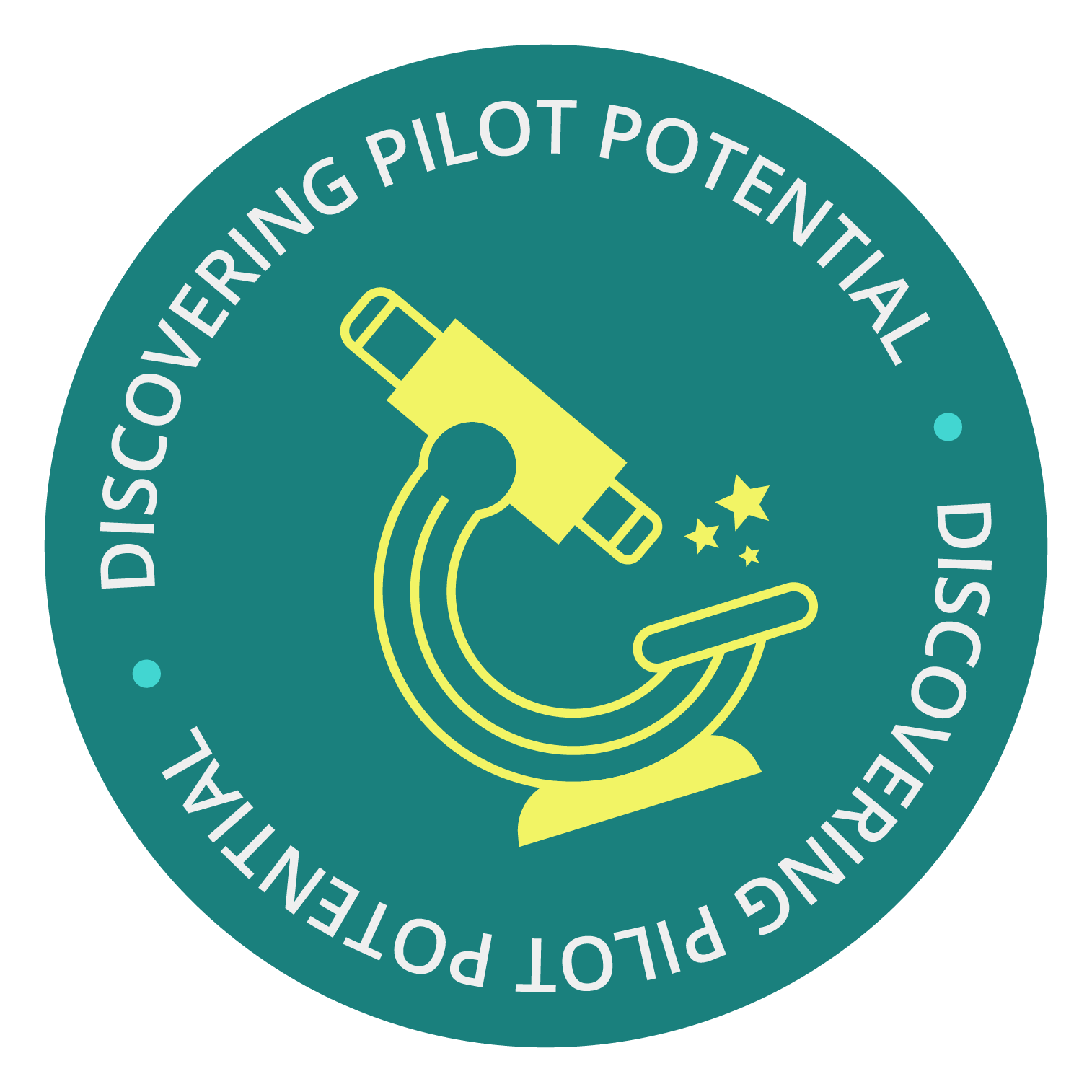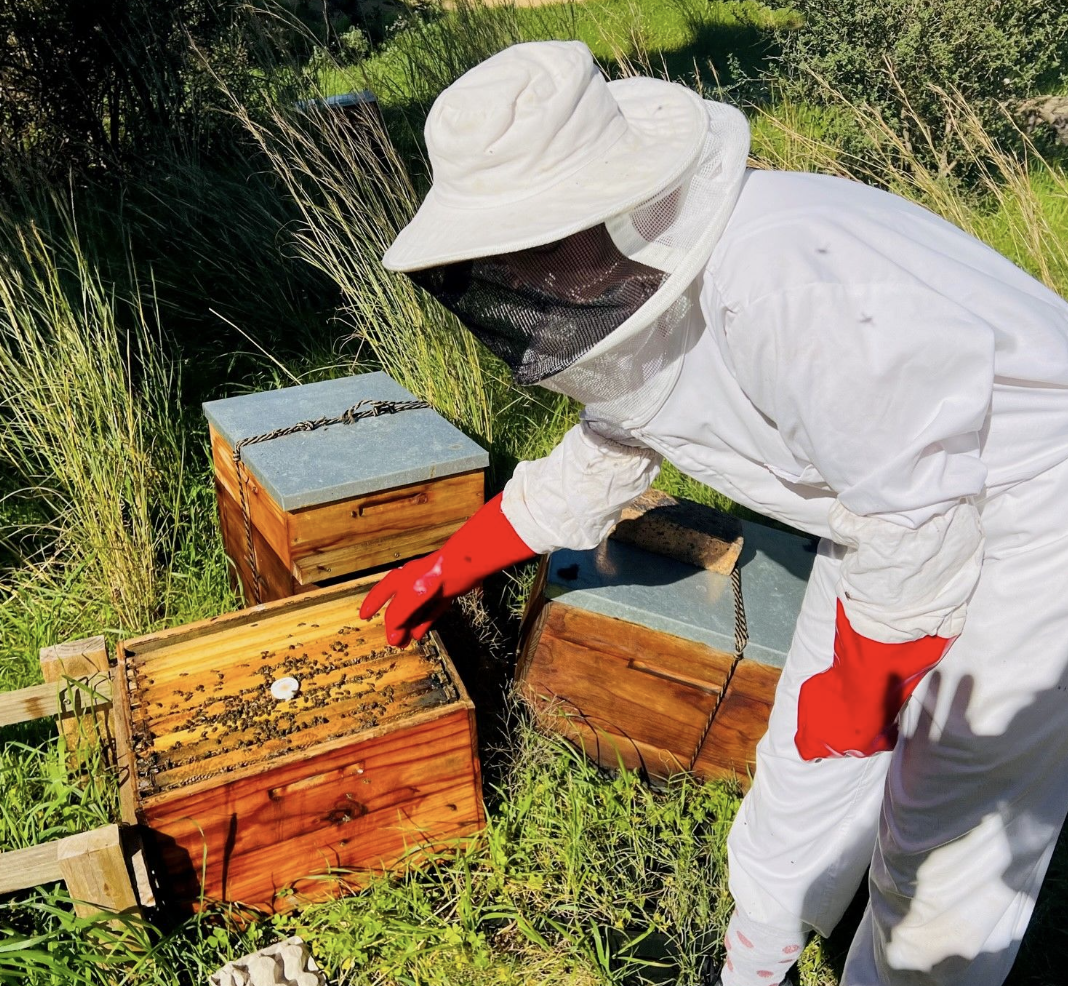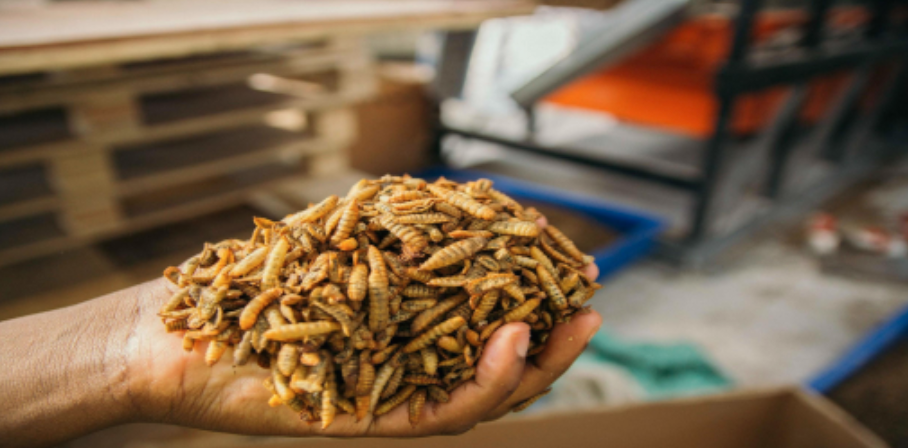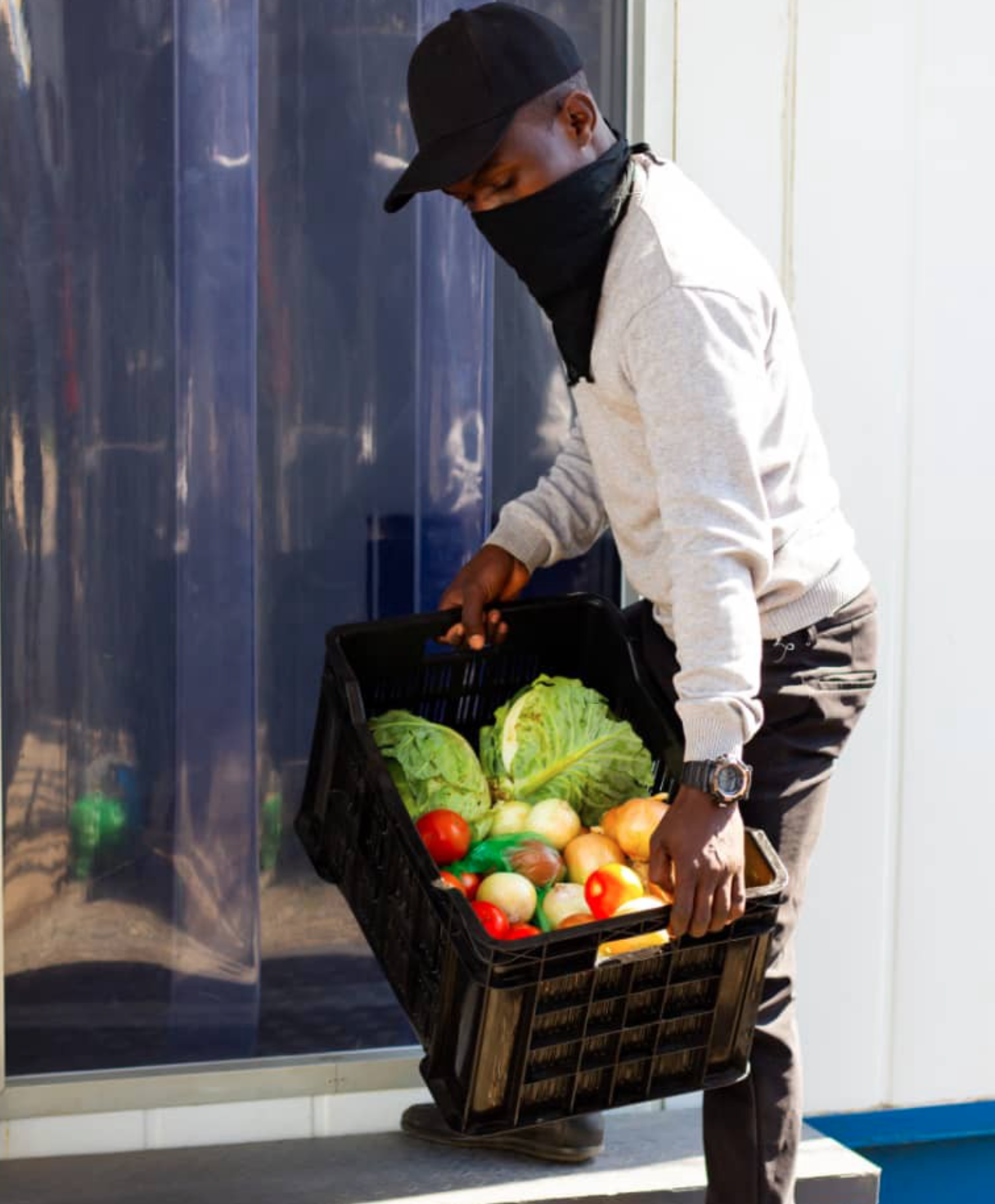Protecting white yam crops using treated banana-fibre paper

THE QUESTION
Can banana fibre paper help fight parasitic nematodes and protect white yam crops?

LOCATION: Ghana
SECTOR: Agriculture and Food Security
TECH: Nature-Based Solutions
TIMELINE: September 2024 - Present
PIONEER: Ezekiel Hayford, Tristan Eagling
PARTNERS: TBC
The Challenge
Yams are a vital crop in West Africa, providing food for millions and income for farmers. But yam farming faces a big threat: parasitic nematodes. These microscopic pests live in the soil, damaging crops, reducing yields, and lowering the quality of harvested yams. In Ghana, nematodes can cause farmers to lose up to 50% of their yams during storage, cutting into their earnings and food supplies.
Farmers have few good options to tackle nematodes. Many rely on chemical pesticides, which can harm their health, pollute the environment, and damage local ecosystems. Others resort to clearing forests to create new, pest-free fields—a practice that is unsustainable and destructive.
There’s an urgent need for a safer, more sustainable solution to protect yams and support farmers’ livelihoods.
The Idea
Banana-fibre paper is made from parts of the banana plant that are typically thrown away, like plant bark or fruit peels. However, treating the paper with abamectin, a nematode-fighting agent (and natural pesticide), can become an innovative tool for protecting crops. Farmers will use a simple "wrap and plant" method, enclosing yam seeds in the treated paper before planting. This shields the yams from nematodes as they grow.
The idea not only tackles the nematode problem but also turns agricultural waste into a valuable resource. By reusing banana fibres, this approach supports a circular economy, where waste is transformed into something useful.
If successful, this pilot could:
Reduce yam crop losses, boosting farmers' incomes.
Cut reliance on harmful chemical pesticides.
Promote sustainable farming practices.
Advance circular economy processes
By turning waste into opportunity, this project has the potential to protect both crops and the environment—empowering farmers in Ghana and beyond.
Our learnings and stories so far
This pilot hasn’t started to publish yet, but there are plenty of other blogs to read below. Check back soon!
Storing renewable energy for longer, without mined metals. One of our nine Underhyped Frontier Technologies for Development.
Our AI Legal Assistant pilot aims to incorporate AI as a tool to enhance the Malawian judicial process, reducing case backlog. Read on for the pilot team’s findings from the discovery phase.
Read the findings from the final sprint of the MyDemokrasi pilot, and how the team plans to take the platform forward to advance digital political engagement in Malaysia.
In this edition of our Launchpad series, Grace outlines our adaptive learning approach to evidence generation, and why it is a core part of the FT Hub’s learning methodology.
Detecting risks using durable, reusable sensors where traditional biosensors fail. One of our nine Underhyped Frontier Technologies for Development.
Powering off-grid communities with sustainable biogas and electricity. One of our nine Underhyped Frontier Technologies for Development.
Capturing and reusing heat for cleaner energy and resilient power. One of our nine Underhyped Frontier Technologies for Development.
Self-powered devices that capture energy from their surroundings. One of our nine Underhyped Frontier Technologies for Development.
Scalable, real-time monitoring for conservation and climate resilience. One of our nine Underhyped Frontier Technologies for Development.
Monitoring, predicting, and optimising water cycles supply and quality. One of our nine Underhyped Frontier Technologies for Development.
Cultivating algae at scale in an enclosed system for clean energy and carbon capture. One of our nine Underhyped Frontier Technologies for Development.
The climate data divide is a major barrier to adaptation in the Global South. We're exploring how climate intelligence could turn adaptation from a cost into an investment opportunity.
In session five of our Launchpad series: Ready to Launch, Frontier Tech Stories Lead Lil digs into the relationship between stories and narratives, and how to understand their connection with each pilot project.
Explore related pilots
Curious about how frontier technologies are impacting agriculture and food security? Read about our other pilots in this sector 👇🏽
Can banana fibre paper help fight parasitic nematodes and protect white yam crops?
Can producing high-purity silica from agricultural waste develop a new supply chain and create jobs?
Can earth observations from satellites coupled with ground big data provide insights for due diligence requirements in a sustainable cocoa production market?
Can IoT sensor technologies improve beekeeping productivity?
Can existing low-cost, low-power wireless IoT sensor technology be adapted to reliably measure and transmit data on parameters critical to insect growth?
Can hydroponic fodder provide an eco-friendly way for cattle raisers to access fodder, increasing the year-round availability of feed and reducing pressures on land use and associated conflicts?
Can using drones as a complementary technology be successful in tackling desert locust invasions in East Africa?
Can the provision of a pay-as-you-go cold storage platform reduce food waste and increase financial sustainability and productivity of smallholder farmers and market vendors in Zambia?
The Frontier Tech Hub works with UK Foreign, Commonwealth and Development Office (FCDO) staff and global partners to understand the potential for innovative tech in the development context, and then test and scale their ideas.























Restoring land and water health with nature-based techniques. One of our nine Underhyped Frontier Technologies for Development.